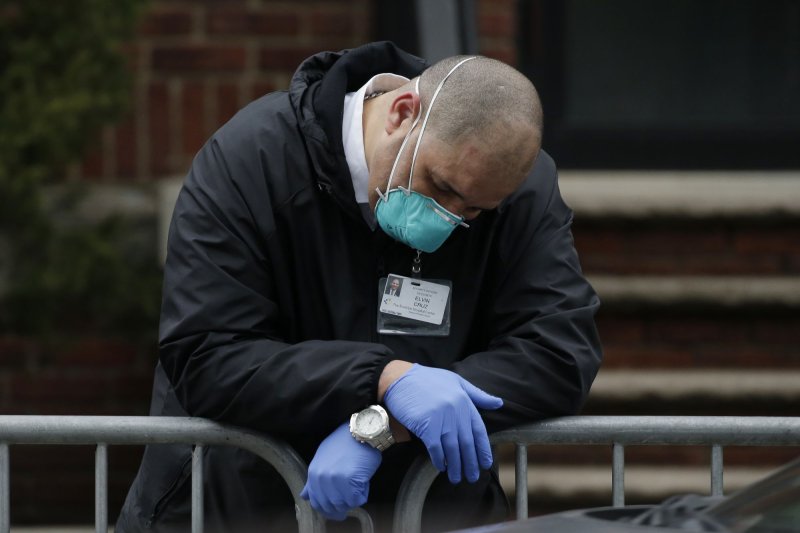1 of 3 | Researchers say that stress during the COVID-19 pandemic has been especially high for medical workers, specifically those who are younger and are women, has taken a particularly high toll. File Photo by John Angelillo/UPI |
License Photo
Oct. 6 (UPI) -- People's stress levels have been high across the board since the start of the COVID-19 pandemic, but particularly so for healthcare workers, women and those age 50 and younger, a study published Wednesday by PLOS ONE found.
In the assessment of more than 10,000 adults in 44 countries, including the United States, during the first half of 2020, study participants scored as high as 90 on the visual analog scale -- a 0 to 100 scoring system designed to measure stress levels, the data showed
Physicians and paramedics registered among the highest scores, above 90, on average, according to the researchers.
Compared with workers in other occupations, healthcare staffs were more than twice as likely to score above 80 on the scale, with paramedics 88% more likely to do so than physicians.
Across all occupations women were about 80% more likely to register above 80 on the scale, while those age 50 years and younger were 45% more likely to do so, they said.
"The pandemic has generated high levels of stress among workers," study co-author Dr. Sébastien Couarraze told UPI in an email.
"These levels have been particularly high for caregivers and in particular for paramedics," said Couarraze, an anesthesiologist at the University Hospital of Toulouse in France.
Previous research has documented high levels of on-the-job stress during the pandemic, even as many people worked from home.
Although healthcare professionals have been working at the "frontlines" of the pandemic, Couarraze and his colleagues said, treating patients with COVID-19, people in other occupations have said they are concerned that the related economic downturn threatens their job security.
This is particularly true in the United States compared with other wealthy countries, studies suggest.
For this study, Couarraze and his colleagues used data from COVISTRESS, an international questionnaire distributed online that has collected demographic and stress-related information during the pandemic.
They analyzed responses from more than 10,000 workers, including roughly 1,400 healthcare workers, 631 physicians and 748 paramedics who completed the survey from January to June 2020.
The higher effects of pandemic-related stress on younger, working age adults is likely explained by efforts designed to "ensure the protection of older populations," Couarraze said.
Based on their findings, continuing to monitor work-related stress, in particular among healthcare workers, is crucial for planning post-pandemic social services, the researchers said.
"It is necessary to integrate stress management or stress learning programs" into workplaces, Couarraze said.















